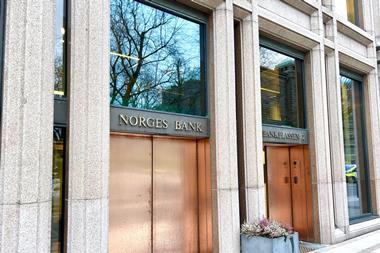Investors representing more than $4trn (€3.7trn) of assets, including the Dutch civil service pension fund and the UK ‘Aiming for A’ coalition, are in the process of filing shareholder resolutions calling on three major mining companies to demonstrate how they are responding to the risks and opportunities posed by the shift to a low-carbon economy.
The companies in question are Anglo American, Glencore and Rio Tinto.
Their annual general meetings take place in the spring of next year.
The ‘Aiming for A’ coalition, which has £230bn (€326bn) in assets under management and includes asset owners such as the UK Local Authority Pension Fund Form and managers such as Hermes, is planning to submit the resolutions by 31 December.
The resolutions are in the process of being co-filed by a wider group of investors representing more than $4trn of assets.
These include UK pension schemes such as Railpen and the Universities Superannuation Scheme.
Aviva Investors, Amundi, BNP Paribas Investment Partners and APG are among the participating asset managers.
The resolutions are similar to those filed with BP and Shell earlier this year, supported by the boards and 98% of voting shareholders.
Edward Mason, head of responsible investment at the Church Commissioners for England, said these resolutions “helped change the way the European oil and gas companies integrate climate change into their business strategies” and that investors would like to see this replicated by major mining companies.
The Church Commissioners are leading the engagement with Glencore.
In a statement today, they said the “engagement partners” had described the resolutions as “supportive but stretching”.
The companies are being asked to maintain a portfolio of assets “resilient to future energy scenarios”, among other actions.
Helen Wildsmith, stewardship director at CCLA and founder of ‘Aiming for A’, said this climate-change-sensitive management of assets had “never been more crucial, with unmistakable policy tightening and technological advance underway, and as more and more investors divest from companies with significant exposure to coal mining”.
In other news, Denmark’s largest commercial pension provider PFA has added HeidelbergCement to its list of excluded companies because of human rights violations.
In a statement on its website, PFA said it did “not wish to contribute to any illegal activities in relation to the occupation of the West Bank” and referred to HeidelbergCement’s extraction of natural resources “in a way that is incompatible with PFA’s policy for responsible investments”.
The extraction and use of natural resources and the interpretation thereof in international law has been a focus for the Danish pension provider throughout 2015, it said, and the move to exclude the German building materials company was in connection with a decision to “change the former practice in the field”.
It could not be immediately confirmed when PFA’s responsible investment board decided to exclude HeidelbergCement.
PFA’s move comes after Norwegian pension provider KLP earlier this year divested from HeidelbergCement over its exploitation of natural resources in the West Bank.











